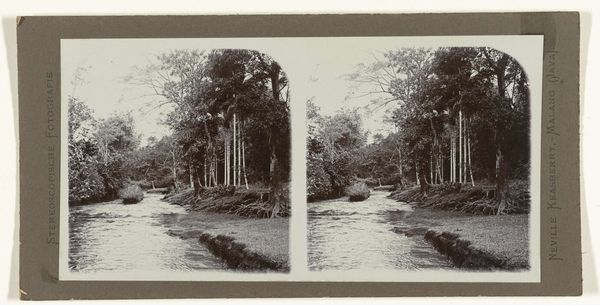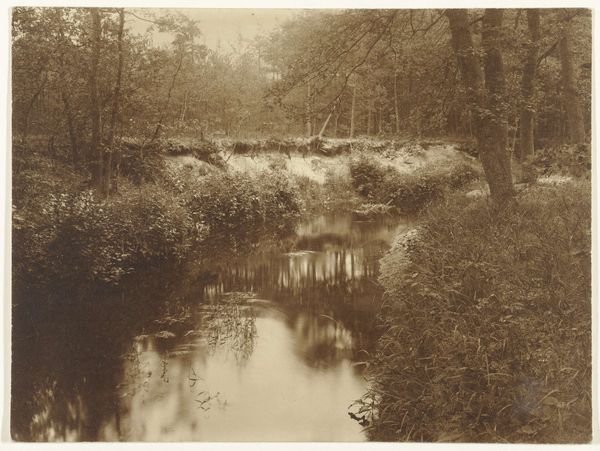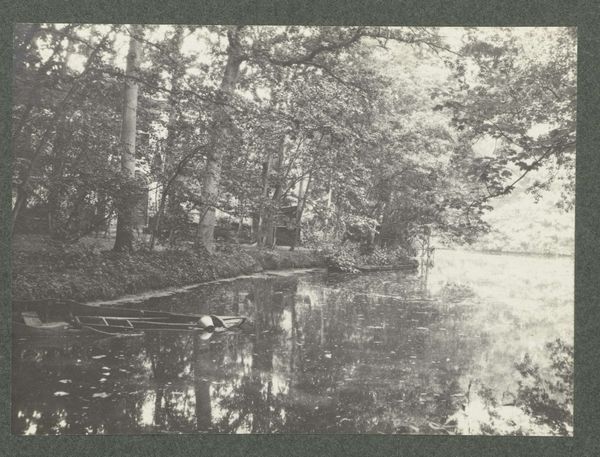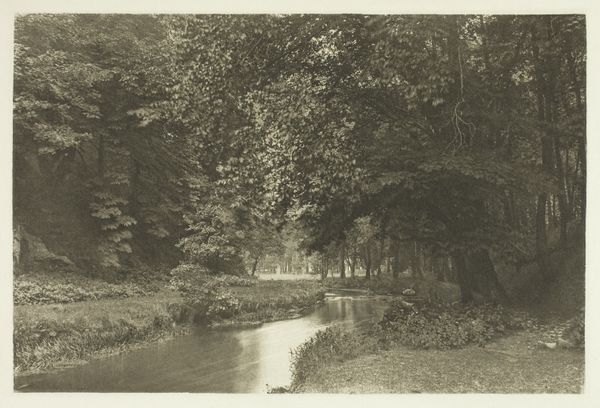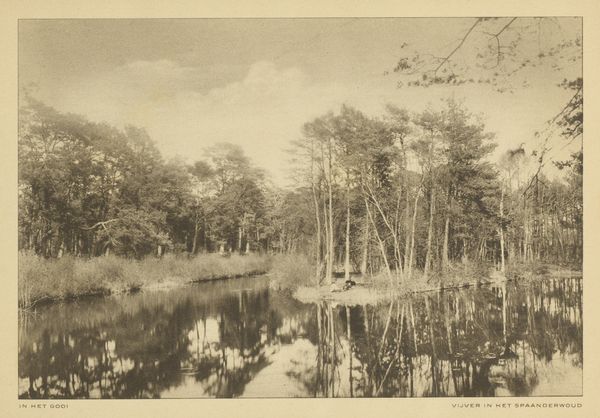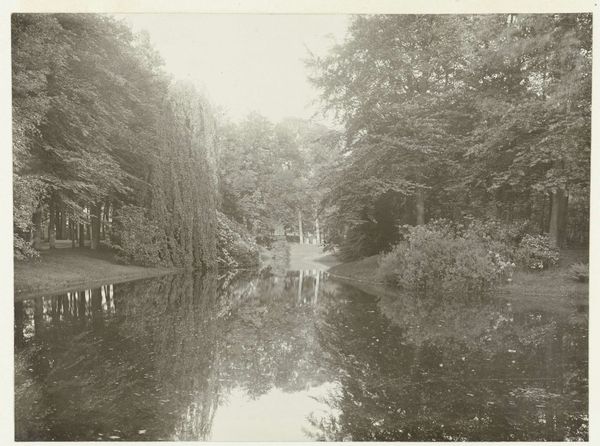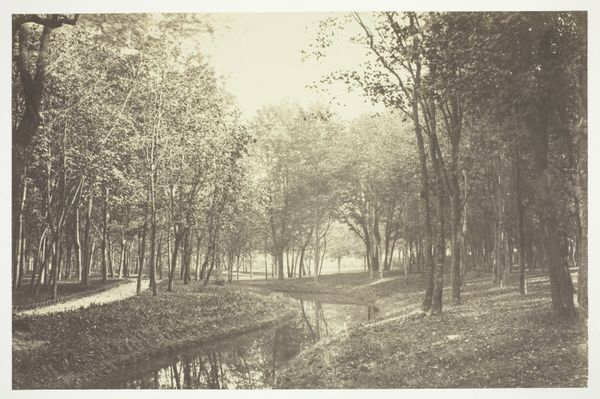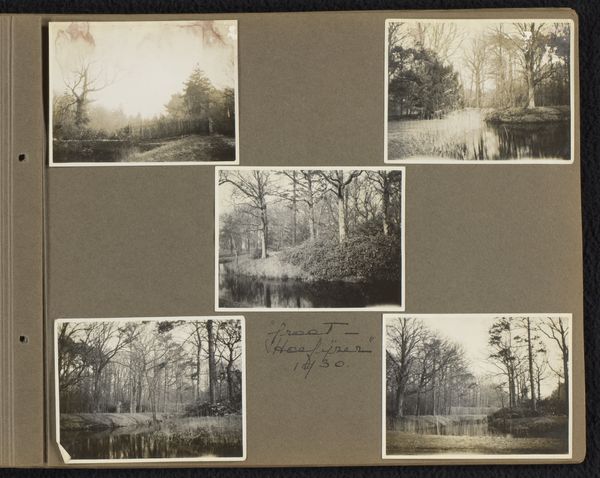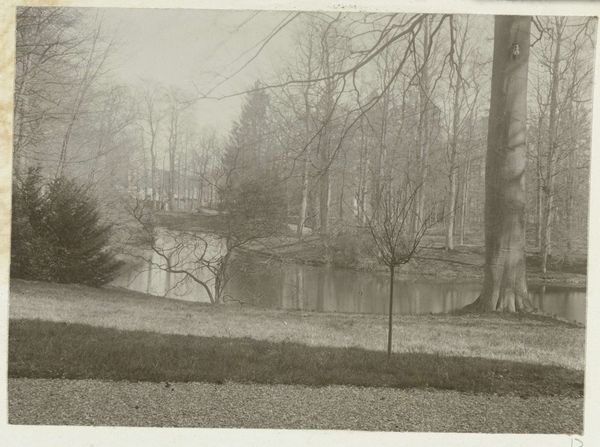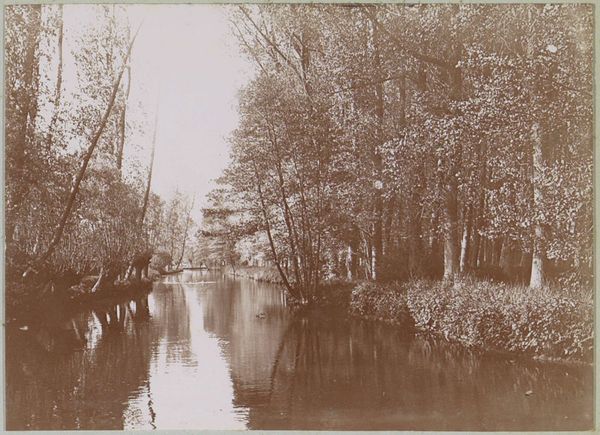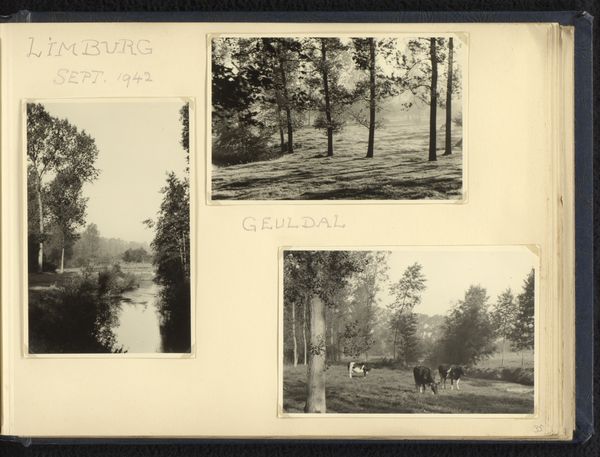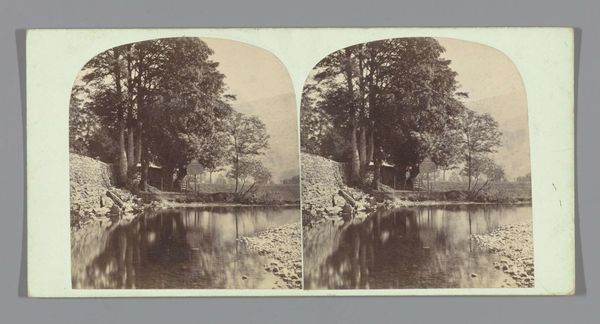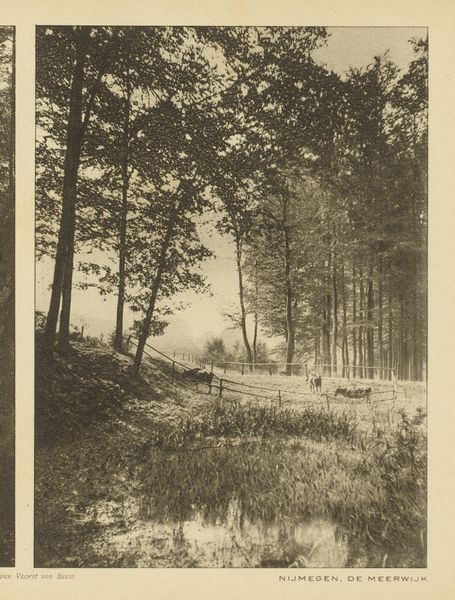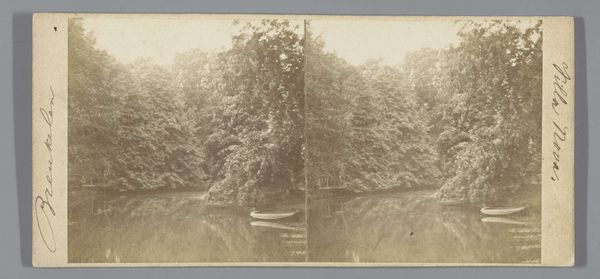
Dimensions: height 83 mm, width 171 mm
Copyright: Rijks Museum: Open Domain
Ferrier Père-Fils et Soulier created this stereoscopic image of a brook in the Bois de Boulogne using photography. During the Second Empire, the Bois de Boulogne was transformed into a space for leisure that mirrored London’s Hyde Park. Its design, influenced by Haussmann's urban planning, catered to the bourgeoisie, reinforcing existing class structures within Parisian society. The Bois became a stage where social identities were both performed and observed. Stereoscopic images like this one provided a novel form of visual consumption. Its three-dimensionality offered viewers an immersive experience, heightening the sense of ‘being there.’ But who was really invited to be ‘there’? What did it mean to stroll through the Bois de Boulogne, and for whom was this simple pleasure available? This image isn’t merely a depiction of nature, but a reflection of the social and cultural values of its time, shaping our understanding of leisure, class, and the constructed landscape.
Comments
No comments
Be the first to comment and join the conversation on the ultimate creative platform.
